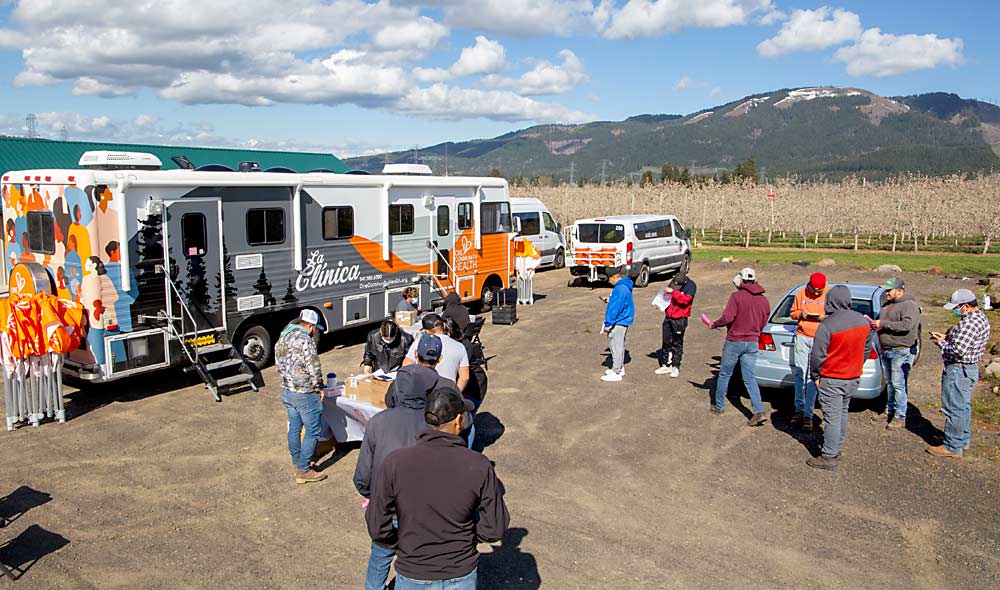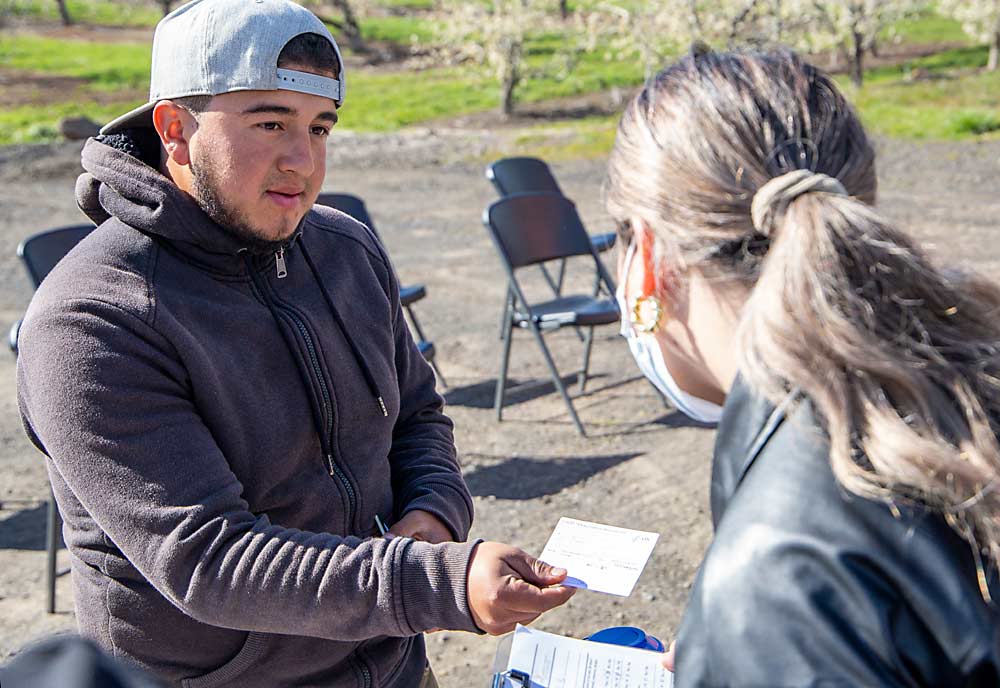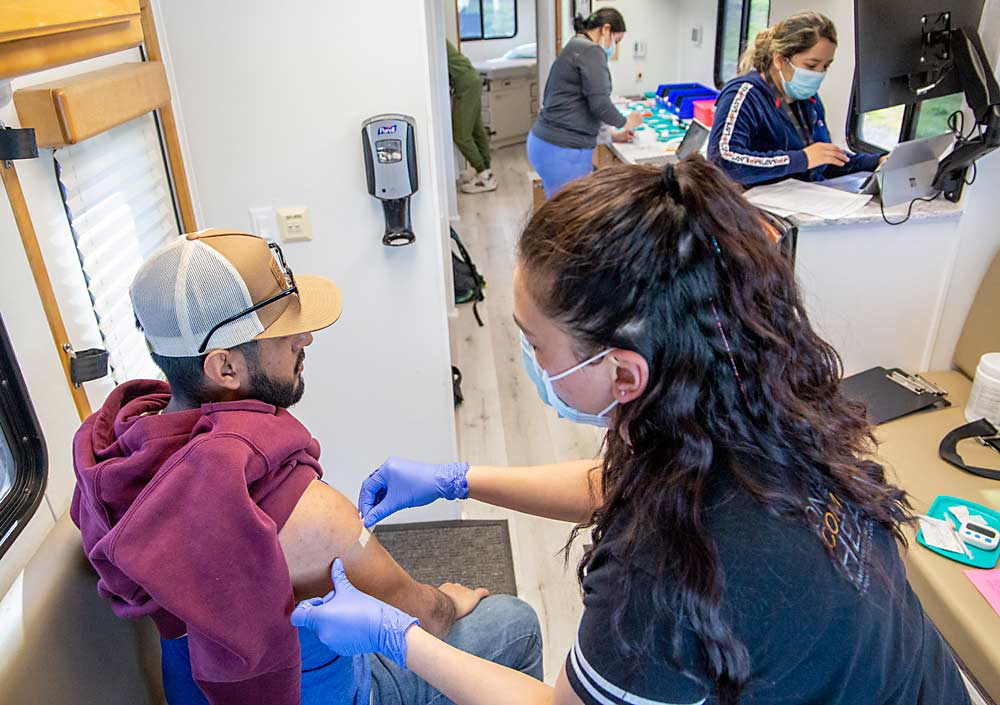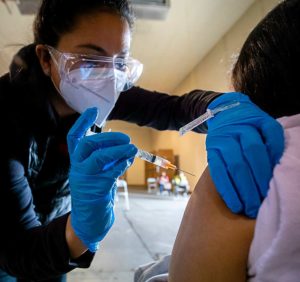
A health nonprofit in Hood River, Oregon, is bringing medicine straight to farmworkers.
This year, One Community Health launched La Clinica, a 35-foot RV that takes health services on the road, including to those who prune and pick cherries and pears in the Columbia Gorge.
The clinic on wheels was born out of grants intended to lessen the impact of the coronavirus on communities, but administrators consider it a permanent way to make health care more accessible.
“We don’t intend this service to go away,” said Gladys Rivera, director of preventative health for One Community Health.
Each year, about 6,500 migrant workers tend farms in Hood River and Wasco counties, more if you include Klickitat and Skamania counties in Washington, which One Community Health also serves, Rivera said. The clinic aims to treat at least 3,000 of those workers per year.
In 2021, health care demand in the Columbia Gorge went through the roof, with hospitals and other organizations laying off staff and cutting nonemergency procedures. One Community Health secured federal and state grants for vaccines and testing, while the state of Oregon dispatched an emergency nursing team to help.

Last year, the nonprofit vaccinated 20,000 people in the Columbia Gorge. Like providers throughout the Northwest, One Community Health administered vaccinations at work locations, including fruit warehouses, a few times.
But otherwise, workers had to visit clinics, schools or other public locations. Not all workers can do that. Some are H-2A employees without vehicles, while some struggle to find child care just for work, much less a doctor’s visit 30 minutes away.
Last year, Mosaic Medical in Bend, Oregon, donated an RV. One Community Health used grant money to renovate it. This year, the clinic’s staff has been visiting orchard labor housing facilities with the RV to administer COVID-19 boosters.
The organization aims to go beyond pandemic-related treatments into seasonal flu shots and annual wellness visits. The group’s community education team visits farms to deliver lessons about heat stress prevention, hydration and wildfire protection — setting up games with prizes to convey the information.
Rivera encourages growers to invite La Clinica to onboarding days. Most of her staff not only speaks Spanish but grew up working in orchards.
“Our families are out there,” she said.
The clinic also can steer workers toward insurance under Healthier Together Oregon, a new law that makes some undocumented residents eligible for full Oregon Health Plan benefits. It takes effect July 1.

The state-funded nursing team remained with One Community Health through the spring, but another group of state-provided staff has taken their place and is more likely to be permanent, Rivera said.
That’s good news for growers and workers in the region, said Taylor Atkinson, general manager and partner of AgriLabor, a Hermiston-based labor contractor.
“Health Care in Hood River is so hard to find,” Atkinson said. The mobile service makes things easier.
He has had to haul workers to The Dalles or all the way to Hermiston, a two-hour drive, for a relatively minor injury like a sprained ankle that the local hospital did not have the capacity to treat.
Earlier this year, Atkinson booked La Clinica to give his workers COVID-19 boosters. He required his employees to receive vaccinations last year. Boosters were optional this year, but most of his workers have accepted the offer so far.
Adam McCarthy, a Parkdale grower, allowed the RV to visit his farm earlier this year and administer COVID-19 boosters. Staff also passed out swag and educational materials. The workers appreciated it, he said.
He echoed Atkinson’s concern about health care access in the past.
“I think there are beneficial things they can do,” McCarthy said, such as dental care.
However, communication was erratic setting up at his farm, he said. He encourages the group to make a greater effort to include growers in planning as they move forward. •
—by Ross Courtney








Leave A Comment